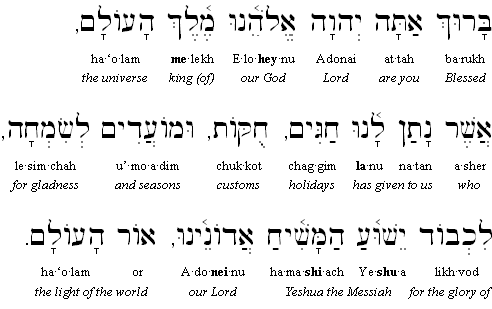Introduction
Prayer is an important part of any Christian’s life. Daily prayer can help you connect with God, and it can also help you connect with other believers. Prayer can also be used to praise God. In this article, we’ll explore some ways to pray for worship and praise.
What is prayer?
Prayer is a word that is often used interchangeably with “supplication.” Prayer can mean anything from simply stating our desire to God, asking for His help, or thanking Him for what He has done in the past to formally invoking His name and addressing specific requests or concerns.
Prayer can also be used as an act of worship. When we pray, we are placing our entire faith in God and requesting His help on behalf of ourselves and others. Prayer can be used to focus our thoughts, ask for guidance, and Communicate with God. It can also be a time of reflection and worshipful praise.
Whatever your purpose for praying, make sure that you are using prayer in a way that is pleasing to God. Dedicate your time to Him in accordance with your own spiritual needs and desires, and let Him use you as He sees fit.
What are the benefits of prayer?
One of the benefits of prayer is that it can lead to a deeper relationship with God. Prayer can also help us to connect with other people, and to see the world in a new way. Prayer can also help us to develop courage and strength, and to learn how to forgive others.
How do we pray?
Prayer is essential to our worship, and it is an important part of our Christian life. Prayer can be formal or informal, personal or public, spontaneous or planned.
There are many ways to pray, and each person will find the way that works best for them. Some people prefer to pray aloud, others in silence. Some pray with Scripture verses or prayers from a favorite religious tradition, while others prefer to simply say a prayer inspired by their own feelings and emotions.
The most important thing is that we remember to pray, no matter what form our prayers take. Prayer can be a time of peace and reflection, a time of petitionary prayer (requesting God’s help), or a time of thanksgiving (praise). Prayer can also be used to connect with God on a deeper level and receive His guidance and strength.
Whatever form your prayer takes, make sure you include both praise and worship in your worship practice. Prayer should be an expression of our love for God and gratitude for all He has done for us. Let’s aim to prayerfully explore Him each day, thanking Him for His blessings and seeking His guidance in all we do.
The Purpose of Prayer
Prayer is an important part of any worship service. Prayer can be used to ask for guidance and for help in meeting our goals. Prayer can help us to connect with God, and it can be a way to express our gratitude to Him. Prayer can also be used to encourage other believers, and it can be a tool for healing.
When prayer is done correctly, it can lead to a sense of peace and calm. This can help us to focus on God during worship services, and it can help us to feel connected to Him. When we pray, we can also ask God for forgiveness, strength, and guidance.
Prayer is an important part of any worship service. Use this blog section as a resource to learn more about the purpose of prayer, how to pray correctly, and the benefits that prayer can have on your worship service.
Prayer and Worship
Prayer is an important part of worship and praise. Prayer helps us connect with God and find strength in times of need. Psalm 34:14 says, “When I am afraid, I put my trust in you.” Praying together can help build community and encourage one another in our faith.
Praise also has a vital role in worship. Praise helps us appreciate God’s goodness and love for us. It can encourage us during difficult times and remind us of His greatness. Psalm 137:1-4 says, “ Give thanks to the Lord, for he is good; his love endures forever. Sing praises to the Lord, for he is worthy of all praise! His righteous laws are eternal, and his judgments are true and just. He has rescued us from all our troubles, and delivered us from all our enemies.”
Prayer and praise can be a powerful way to connect with God and express our gratitude for his many blessings.
Introduction to Praise
Praise is a form of worship that is often seen as one of the most important aspects of Christianity. Praise can be seen as an expression of thankfulness and praise to God for all that He has done in our lives. It can also be used as an opportunity to encourage others and bring them into a closer relationship with God.
There are many different types of praise that can be used in worship, and it can vary depending on the situation or person being praised. Popular types of praise include Christian anthems, hymns, and spirituals. These types of songs were often written to express gratitude for God’s blessings in specific areas of life, such as health, relationships, or material possessions.
In today’s culture, some people may view praise as cheesy or corny. However, there is nothing wrong with singing simple praises to God in response to His abundant goodness in our lives. The key is to choose songs that resonate with us and express our deepest desires and feelings towards Him.
If you’re looking to start incorporating more praise into your worship services, here are five helpful tips:
1. Make sure the music fits the mood – Some worship songs are designed for softer moments in Scripture readings
Types of Praise
There are three main types of praise that can be used in worship: expository, anthemic, and contemplative.
Expository praise is designed to edify and instruct the church. It is usually focused on God’s attributes and work in the world. Anthemic praise is focused on praising God for His glory and magnificence. It often includes musical accompaniment and lyrics that communicate a sense of awe and wonder about God. Contemplative praise is designed to create a sense of peace, joy, and love in the worshiper. It often features prayers or Scripture readings that lead the person into a deep personal relationship with God.
How to Prepare for a Service
When planning a worship service, it is important to have an understanding of the biblical focus and intention of the service. In order to facilitate a prayerful and reverent atmosphere, it is also helpful to include specific prayers and praise scriptures in your service.
Below are some helpful tips for preparing for a worship service:
1. Choose a biblical focus for your service. When planning your service, select texts or themes that reflect the purpose and intent of worship. This can be anything from thanksgiving and reconciliation to salvation and revival.
2. Create an atmosphere of reverence. A worship service should be conducted with seriousness and reverence. Use simple language, avoid talking during prayer, and avoid distracting sounds or activities.
3. Involve members of the congregation in prayer. Prayer can be meaningful and powerful when shared by all members of the congregation. Encourage people of all ages to join in prayer together at specific points during the service.
4. Make use of scripture during worship services. Scripture should be used as a guide for everything that is said and done during a worship service. Consider including specific prayers or praise scriptures in your program.
Prayer is an important part of our worship and praise experience, and there are many ways to include prayer in our life. Whether we pray before or after singing a song, during communion or when we gather together for intercession, prayer can be incorporated into just about any moment of worship or praise. We hope that this article has given you some ideas on how to incorporate prayer more deeply into your worship service. What are some of the prayers that are especially meaningful to you? Let us know in the comments below!






